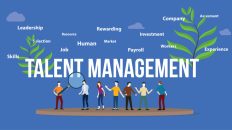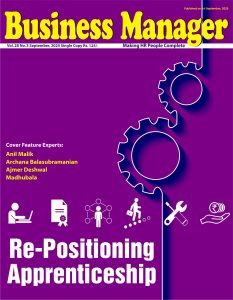The real estate industry is undergoing a profound transformation, shaped by the rising influence of technology, sustainability imperatives, and the rapid development of smart cities. This evolution is not only redefining how real estate is planned, built, and managed but also demanding a fundamental shift in how talent is attracted, nurtured, and retained within the sector.
Traditionally seen as a domain focused largely on transactions and assets, real estate now finds itself at the intersection of innovation, sustainability, and digital disruption. As the industry adapts, so too must the human resources (HR) strategies that support it. Organizations need to implement forward-thinking talent management approaches centered on skill development, leadership evolution, and a culture of agility and innovation.
Evolving Market Demands: Why Change Is Essential
New trends in real estate, such as green buildings, net-zero emissions targets, smart infrastructure, and the use of artificial intelligence (AI) in design and planning, require a workforce equipped with a vastly different skillset than was needed a decade ago. Sustainability now plays a critical role in corporate strategy, and this shift must be matched by internal talent strategies that prioritize relevant skills and mindsets.
This pivot towards sustainability and smart city integration calls for engineers, architects, and project managers who are well-versed in green technologies, data analytics, IoT (Internet of Things), and ESG (Environmental, Social, and Governance) compliance. Therefore, HR must expand its focus beyond transactional hiring and become a strategic partner in building a future-ready talent pipeline.
Bridging the Skills Gap Through Learning and Development
The technological advancements in real estate have created a pressing skills gap. Facilities managers, site supervisors, and even senior developers are now expected to work with digital tools, automation software, and sustainability reporting frameworks.
To close this gap, real estate companies must invest heavily in training programs, upskilling initiatives, and partnerships with educational institutions to offer specialized certifications. Internal knowledge-sharing platforms and mentorship programs can also foster a culture of continuous learning. This approach ensures that existing staff remain competitive while creating opportunities for younger professionals to enter the industry equipped with relevant capabilities.
Leadership Development for a Future-Oriented Industry
Leadership in real estate is no longer confined to managing construction timelines or property portfolios. Leaders today must act as change agents—driving digital transformation, fostering sustainability practices, and managing hybrid or decentralized teams.
Organizations should prioritize leadership development programs that focus on emotional intelligence, systems thinking, and strategic foresight. According to Russell Reynolds Associates, companies that prepare leaders for these multifaceted roles are better positioned to thrive in an unpredictable market.
Moreover, succession planning needs to become more robust. A significant portion of the current leadership in Indian real estate, for example, is family-driven or legacy-led. There is an urgent need to formalize pathways for emerging talent, ensuring leadership transitions that align with future business priorities.
Fostering a Culture of Agility and Innovation
HR’s role extends beyond recruitment and retention—it now encompasses shaping company culture. Real estate companies must encourage innovation, agility, and a risk-taking mindset. HR should support cross-functional collaboration, intrapreneurial initiatives, and agile project management structures.
Moreover, diversity, equity, and inclusion (DEI) must be embedded within hiring and growth frameworks. As younger professionals and global investors increasingly value inclusive and ethical workplaces, companies that lag on these fronts may lose competitive edge.
As highlighted by the Talent Management Institute, building a sustainable and skilled workforce is not about reacting to trends, but about leading the change.
Conclusion
The real estate sector is evolving rapidly—technologically, environmentally, and socially. To stay ahead, organizations must invest in strategic, future-forward talent management. This means developing sustainability-focused skillsets, cultivating transformational leadership, integrating HR into core planning, and fostering a culture built on agility and innovation.
As the industry embraces the digital and sustainable future, talent will be the key differentiator. HR strategies that anticipate and adapt to these changes will not only secure business continuity but also lay the foundation for long-term growth and industry leadership.
Stay connected with us on social media platforms for instant updates click here to join our LinkedIn, Twitter & Facebook









